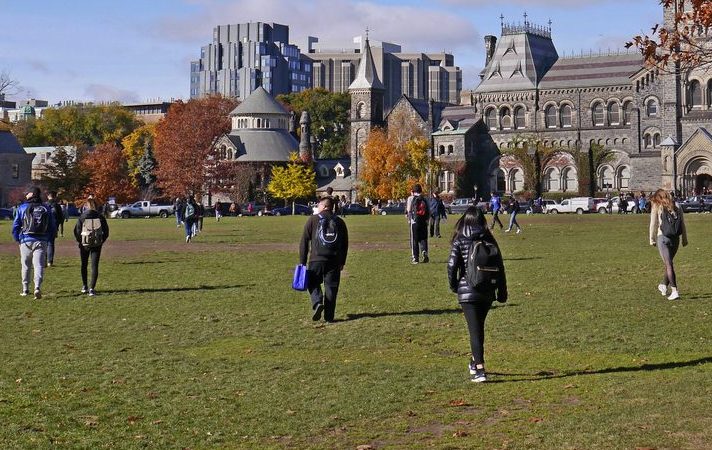|
Getting your Trinity Audio player ready...
|
In part one of this two-part series, we introduced William Donald’s integration of the concepts of career ecosystems and sustainable careers to offer a sustainable career ecosystem. In part two, we build on the foundation of a sustainable career ecosystem by considering what career services of the future might look like within post-secondary institutions.
A recurring theme in higher education is the need to do more with less. Post-secondary career centres are not immune to this phenomenon. The primary challenge is that for career support to be effective, it needs to be tailored to the individual, which is incredibly difficult to achieve at scale. Nevertheless, career services of the future must overcome resourcing challenges by embracing innovation to maximize the sustainability of the career ecosystem for all actors. This article will explore practical strategies for optimizing resources while maintaining high-quality service delivery.
Strategy #1: Partnerships
Given that career centres are not likely to see dramatic increases in funding any time soon, they must rely on partnerships to provide effective and scalable solutions for service delivery. Embracing the notion that student employability is a campus-wide initiative that requires everyone’s support and energy (similar to wellness or academic success) is a necessary first step. This mindset brings a palpable energy to partnership exploration and is a great foundation to build from.
Next, collaborating with campus partners to find mutually beneficial spaces for integrating career education will be critical for success. Ho, Stewart-Smith and Gunaratne have coined the supporters within these dynamic partnerships “career influencers.” Integrating career support into other spaces – be it faculty-based, work-integrated learning, peer programs or student success-related initiatives – offers manageable outlets for scaling and a plethora of opportunities for student reflection. The common denominator of these partnerships is student success, both short and long term. Helping campus partners see how career success is a key student motivator for academic pursuits, extra-curricular involvement and internship exploration will illuminate the benefit of integrating career development activities into existing programming.
“Given that career centres are not likely to see dramatic increases in funding any time soon, they must rely on partnerships to provide effective and scalable solutions for service delivery.”
Bonus: Students tend to view all campus departments as one entity. They have difficultly navigating campus because of the narrow (sometimes rigid) scope of departments and services. Embedding career development content, activities and resources within these partnerships supports an integrative and holistic approach to learning that students will appreciate.
Strategy #2: Embracing technology
Another way to think about partnerships for longitudinal success is via technology. Career services of the future will need to embrace technology to support scalability. Exploring tools that draw on artificial intelligence or virtual reality are cost-effective solutions. Marketing these applications as supportive tools to be used in partnership with career support, not in place of it, will be critical for success. To make headway in this area, career centres will need to leverage strong relationships with their institutions’ technology services departments to integrate career software platforms into existing campus infrastructure.
More from the authors: Imagining a sustainable career ecosystem in post-secondary
One of the fundamental requirements of career service provision within post-secondary institutions is to prepare students to navigate volatile, uncertain, global and evolving labour markets. This will prove even more critical as we enter into the fourth industrial revolution. Thus, exploring technological solutions that aid students in developing and honing their ability to tell stories will be imperative for maintaining the strength of the sustainable career ecosystem into the future. While skills articulation will remain a critical tool for career success, communicating one’s story using narrative approaches will become increasingly necessary given the non-linearity and rapid prototyping that will define career navigation. Comfort with using a narrative approach will ensure that students are able to exercise career agency long after graduation.
Strategy #3: High-quality, one-on-one services for those who need them
Strategies 1 & 2 offer scalable solutions to be used alongside career centre service delivery. Career centres of the future are not only innovative in their partnerships and technology, they also recognize the importance of high-quality service delivery in the traditional one-on-one format.
As identified, for career support to be most effective, it must be tailored to the needs of the individual. Personalized support enables career practitioners to hear, acknowledge and incorporate an individual’s lived experience into conversation and planning. At the same time, there are concerns that individuals who would benefit from career support the most are least likely to seek it proactively. This is problematic since a lack of access to such support can exacerbate pre-existing inequalities.
Career services of the future will house staff that visibly reflect the student body and offer services that safely and competently embrace students’ intersectional identities. Through these shifts, career services will build trust with diverse student bodies and be seen as value-added. Though one-to-one interactions cannot occur for every student on campus, based on resourcing constraints, every student who accesses career services should unequivocally receive quality support that is tailored to their unique circumstances.
Championing sustainability
Career services of the future will intentionally lean into the career influencer space, thoughtfully embrace technology as a complement to service delivery, focus on providing tailored career education support that respects and supports participants’ intersectional identities and design learning interventions that capably equip students with the tools needed to navigate an uncertain world. By doing so, post-secondary career services will remain a steadfast champion of the sustainable career ecosystem well into the future.





